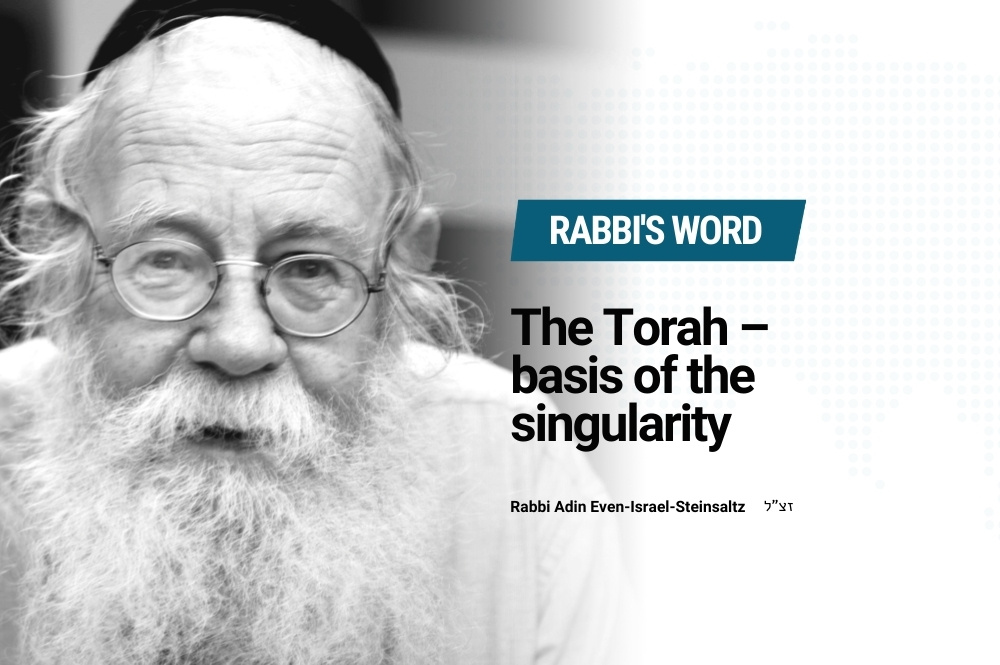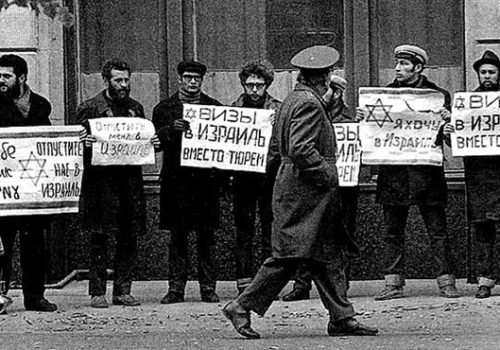
We continue cooperation with the institute of Rabbi Adin Even-Israel Steinsaltz and publish specially prepared material for the communities of the EAJC members. We publish this article after the death of Rabbi Steinsaltz, one of the greatest philosophers of our generation, a scientist and a Hasid. Let his memory be blessed.
The day of the Giving of the Torah is indisputably the most important date in all of Jewish history. Although the Jewish calendar is full of momentous dates – days of remembrance of redemption and salvation, days of mourning over destruction and downfall – all these dates are dwarfed in comparison to this central event.
We have experienced many national turning points, events of extreme importance to our destiny. The exodus from Egypt marked the beginning of the Jewish People’s emergence as a nation; Joshua’s conquest of the Land supplied the nation with a homeland; the establishment of the Kingdom of David and the building of the Temple created a governmental structure and permanent center for the Jewish people. Nevertheless, the day of the Giving of the Torah is more distinctive and exalted than all these days and events.
To fully understand the significance of the event, we must first examine several of its aspects.
First, the Giving of the Torah is a singular event; it distinguishes the whole essence of the Jewish People and constitutes a characterizing point for the whole course of its existence. Other events, although important to our history, are not, in and of themselves, unique to us alone. Many peoples wandered until reaching the place of their permanent settlement; many peoples established a state and kingdom, and even lost them (only a very few, however, were exiled from their place and then returned to reestablish their state. This, then, can also be regarded as part of Jewish singularity). Those important and central events in Jewish history thus have their parallels in the histories of other nations. Although that does not detract from the importance of those events, it does detract from their singularity.
This is not the case regarding the revelation at Sinai and the receiving of the Torah. This event is singular and without parallel in the history of any other nation, whether in recorded history or in folk tales. This singularity lies not only in the very acceptance of a new faith and way of life, but in the unique manner in which all the members of our people accepted this way of life.
The Giving of the Torah is a singular event primarily because of the event’s influence on the Jewish People’s essential nature. Due to the content and character of the Giving of the Torah, it alone formed the inner singularity of the Jewish People for all time.
Clearly, there is an element of distinctiveness in the very fact that the Jewish People at its inception left the house of bondage, but this distinctiveness could not have taken on its full significance without the acceptance of the Torah, which inscribed the exodus from Egypt as an enduring memory within the collective Jewish memory.
Neither the existence in the past of a Jewish state, nor the creation of classical Jewish literature, nor the Jewish People’s lengthy exile could have taken on their unique dimensions without the Giving of the Torah. The Giving of the Torah not only invested our whole historical system with meaning, but also made it possible for each event to contribute to the character, human type, and spiritual creativity unique to our people. Following acceptance of the Torah, everything that happens to the Jewish People automatically takes on unique significance, which not infrequently increases and heightens our distinctiveness. From the Giving of the Torah onward, everything that happens to us – for good or for bad – necessarily is done and happens in a unique manner, in a Jewish manner.
Another aspect of the unique significance of the Giving of the Torah lies in the fact that it represents an irreversible process in our history.
In the course of history, the Jewish people has experienced many ascents and descents, almost every one of which represents one side, which is counteracted by an opposing event. Opposite the conquest of the Land, there is the catastrophe of exile from it; opposite the building of the Temple, there is the destruction of the Temple; and opposite the exile and the suffering, there are periods of return to the Land and its rebuilding.
In other worlds, even the most momentous events are, by their very nature, reversible. There is no situation or state of being that does not have its antithesis, which is likely to cancel its effect and change its value.
The Giving of the Torah, however, stands apart from all of the foregoing, in that it is an event from which there is no going back. The Jewish people’s change in essence and status, a change brought about by the Giving of the Torah, is such that the Jewish people cannot – even if it wanted to – back out of it.
Ever since the Jewish people’s transformation, at the revelation at Sinai, into “a kingdom of priests and a holy nation” (Exodus 19:6), it could no longer become something else. To be sure, it is possible that individuals among the Jewish people, large parts of the people, or even the whole people will at times not want to fulfill the Sinaitic commitment. This non-fulfillment, however, does not negate the unique nature of the Jewish people, and is merely an attempt not to live up to it, not to persist in it – without the ability to change it. It is possible that the Sinaitic covenant will not be upheld at one time or another, but it cannot be abrogated.
Let us remember that there have been attempts to abrogate this covenant not only in recent centuries but over the course of thousands of years, ever since Sinai; only that these attempts – «when you say, “We will become like the nations, like the families of the lands”» ( Ezekiel 20:32) – never succeeded. Ever since the acceptance of the Torah the Jewish people, as a people, has had its own special path, which it cannot leave. Hence, any attempt to do so leads to one of two results: either to a stage in which the people (or part of it) recommits itself to the covenant again and yet again, or else that part of the people that is not interested in the covenant separates from the Jewish people.
The dilemma – should one be like the ten tribes, that is to say: abandon the way of the Torah and ultimately be eliminated from the Jewish people – has been and continues to be faced in many other situations in our history; basically, it is: to return or to disappear. For the change in essence effected by the Giving of the Torah is permanent. There is no possibility of returning the Torah to its Giver, while continuing to be the “Jewish people.”

